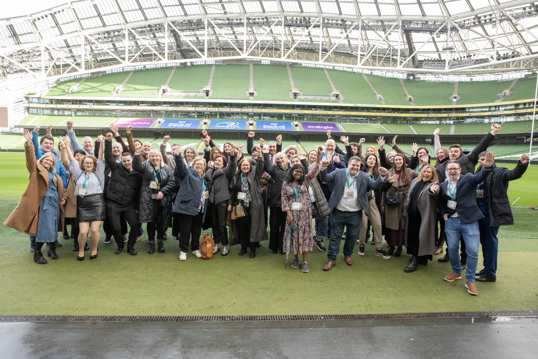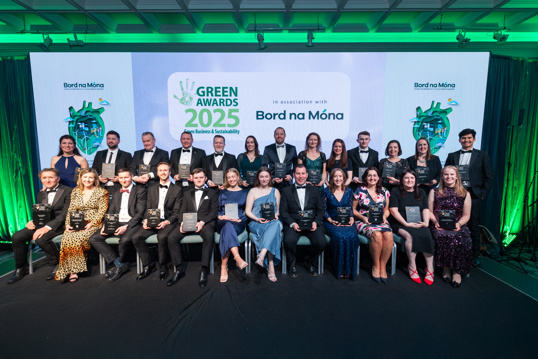In today’s fast-evolving workplace, fostering a sociable culture isn’t just a nice-to-have; it’s a necessity.
Compass Group’s The Power of Socialisation report has uncovered powerful insights into how creating sociable moments at work can unlock employee happiness, loyalty, and productivity.
About the Study
The study, conducted exclusively for Compass Group by global market intelligence agency Mintel, polled over 30,000 workers and students in 21 countries. It found that encouraging sociable moments helps employees look forward to going to work and signals a company’s commitment to inclusivity, wellbeing and career progression.
Why Sociability Matters
The report reveals that 85% of employees in sociable workplaces feel more connected to their teams, with stronger collaboration and creativity driving success. Conversely, disconnected environments lead to higher turnover rates and decreased engagement.
Key Findings From The Report
Multifunctional Spaces for Escapism and Connection
Modern employees spend a significant portion of their lives at work, and uninspiring environments can lead to disengagement. Conversely, well-designed, multi-purpose spaces encourage relaxation, creativity, and collaboration.
- 71% of employees prioritise social spaces that feel inviting.
- Happiness levels soar to 83% in enjoyable workplaces but drop dramatically to 22% in uninspiring settings.
- 45% of hybrid workers would return to the office more frequently if opportunities to socialise were available.
From stylish lounges to serene breakout areas reminiscent of boutique hotels, a touch of thoughtfulness can turn workplaces into connection hubs. These "hotelised" workplaces prioritise the needs of employees, offering escapism alongside productivity benefits for employers willing to embrace the concept.
The Role of Food and Drink
Food has always been more than just sustenance; it’s a bridge between colleagues and a catalyst for wellbeing. Compass Group’s research confirms that providing excellent food and drink options can transform the workplace community.
- 74% of employees with food and drink facilities participate in weekly social lunches.
- Those who lunch together are four times more likely to engage in team-building activities than those without such amenities.
- Offering a mix of healthy and indulgent snacks creates a vibrant, social atmosphere.
Forward-thinking food experiences, such as guest chef pop-ups, cooking masterclasses and chef's tables, have become essential for engaging younger generations who prioritise immersive and inclusive initiatives over traditional alcohol-based events.
Finding the Right Balance in Sociable Moments
Whether organic or planned, moments of connection are critical in creating a cohesive team dynamic.
- Organic socialising fosters a sense of belonging and deepens friendships, while organised events strengthen ties to leadership and align employees with organisational goals.
Insights from the survey reveal that:
- 76% of employees participating in social moments understand company strategies, compared to just 56% who do not.
- Those who socialise often describe their teams as highly productive (94%).
- Sociable workplaces see 85% of employees collaborating effectively, compared to just 37% in less social environments.
Hybrid workers, in particular, desire these interactions, with 45% stating they’d visit the office more often if offered more social opportunities.
Why Socialisation Matters Now
The pandemic's aftershocks have left 38% of employees feeling less loyal to their organisations.
This figure climbs to 51% among Gen Z and 45% for Millennials. Creating sociable workplaces is no longer optional but a strategic necessity to counteract these trends and cultivate a culture of creativity, collaboration, and belonging.
In environments rich with social connections:
- 84% of employees feel empowered to express opinions.
- 77% are highly productive and describe their workplace as supportive.
In Conclusion: 3 Key Drivers of a Sociable Workplace
The Right Environment: Multifunctional spaces prioritising comfort, creativity, and inclusivity are essential. Features like well-designed breakout areas and communal hubs foster organic interactions that enhance team spirit and productivity.
Food and Drink: More than sustenance, shared meals build connections. Employees with access to inclusive, varied food options are 50% more likely to participate in team-building activities.
Moments That Matter: Balancing organic and planned social interactions is critical. Informal coffee breaks nurture friendships, while organised events align teams with company goals and values.
As workplaces adapt to hybrid models and new employee expectations, building a sociable culture is key to creating a thriving, loyal, and engaged workforce.
Kirsty Adams, People Director Talent, Learning, Leadership & Inclusion, Compass Group UK & Ireland said:
Now more than ever, creating environments that nurture and support positive social environments is crucial – helping overall health, wellbeing and happiness, which in turn enhances peoples’ loyalty and productivity. ‘The Power of Socialisation’ report highlights that enabling powerful moments of social connection at work is a necessity - something that is key within Compass for our colleagues, but also increasingly for our clients and customers across a range of sectors.
Nicky Martin, Director of Nutrition and Wellbeing, Foodbuy UK commented:
We know that food and nutrition have a role to play in positive moods and wellness. It goes without saying that the environment you are in is integral to happiness and, therefore, output. This report brings it all together, highlighting that when you mix great food alongside sociable spaces and time, it really does enhance the working and wider experiences of an individual.
(1) Sources: 1. (Compass Group PLC 2024) The Power of Socialisation.



